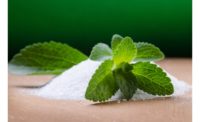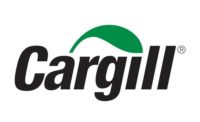International expansion could be possible for Stevia, according toPackaged Facts, as demand for artificial sweeteners grows and new plant-based sweeteners offer the advantage of being ‘natural’ and containing fewer calories than sugar.
The U.S. sweetener market is the largest and most diverse in the world. Americans are the heaviest consumer of sweeteners thanks to dozens of sweetener choices available at the retail/consumer level and for food manufacturers. These options range from sugar and its many variations to high-fructose corn syrup and from a menu of artificial sweeteners to new plant-based sweeteners that offer the advantage of being natural products containing fewer calories than sugar.
Stevia benefits from the momentum caused by the media attention, the potential of new markets and its Food and Drug Administration (FDA) GRAS status, according to "Sugar, Sugar Substitute, and Sweetener Trends in the U.S., 3rd Edition" by market research publisherPackaged Facts. Support by major corporations such as Coca-Cola and PepsiCo has also proven a boon and have helped changed the entire Stevia market dynamic since the end of 2008.
"Companies were ready to jump into the market with a wave of kitchen and tabletop Stevia formulations and Stevia-sweetened products the moment the FDA gave it GRAS status in December 2008, and have since formed partnerships and entered into mergers and acquisitions as part of strategies to exploit this market," says David Sprinkle, publisher ofPackaged Facts. "This enthusiastic roll-out of Stevia-based products continues unabated."
The combined global retail and wholesale markets for Stevia were estimated at $20 million in 2008. Current estimates vary wildly, but generally, estimates of the combined market size in 2011 range from $800 million to $2 billion, according to reports. Between 2004 and 2008, more than 2,000 Stevia-sweetened products were introduced worldwide. In 2010, 76 Stevia-sweetened product lines were introduced to the U.S. market alone. Most of the new products introduced combine Stevia with one or more other sweeteners.
And, Stevia is currently on its way toward approval for use within the European Union. In July, the EU Standing Committee on Food Chain and Animal Health approved high-purity Stevia for use as a food ingredient throughout the EU. The next regulatory step is scrutiny of the proposed regulations by the European Parliament. It’s likely that high-purity Stevia will be allowed to be used as an ingredient in the EU by November.
Source: www.marketwire.com
Get our new eMagazine delivered to your inbox every month.
Stay in the know on the latest snack and bakery industry trends.
SUBSCRIBE TODAY!Copyright ©2024. All Rights Reserved BNP Media.
Design, CMS, Hosting & Web Development :: ePublishing



